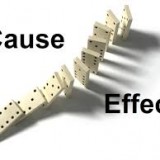Manulife applied to have me disqualified from suing them, and lost.
On November 30, 2015, the BC Supreme Court dismissed arguments by the Manufacturer’s Life Insurance Company, attempting to have me disqualified from acting as plaintiff ‘s counsel in a breach of contract claim against them.
read moreWhat is a Functional Capacity Evaluation?
Functional capacity evaluations, functional assessments and functional abilities evaluations are all different names for the same thing: a series of tests and observations used to estimate your ability to function at work. For simplicity I will just refer to them collectively as functional capacity evaluations. Functional capacity evaluations (FCE’s) usually take place over one or two days and are administered by a health professional (usually an occupational therapist, physiotherapist or kinesologist). The testing usually will take the entire day (for a one-day FCE) or a day and half (for a...
read moreIf causes of depression are not “divisible”, defendants are liable for all symptoms.
Ms. K. suffered whiplash type injuries in a 2007 car accident. Her pain became chronic and she became depressed. The consensus of the medical experts at her trial was that “her chronic pain is unlikely to resolve and the focus of her treatment should be on pain management, not cure.” Ms. K. admitted that she had a troubled childhood. also, a few years after her accident she experienced a torn rotator cuff, then shoulder surgery and then a frozen shoulder which were all unrelated to her accident. In K. v. Galasinao, 2015 BSSC 1532, Mr. Justice Blok concluded that “there is a...
read moreSupreme Court Judge: ICBC doctor a “very unhelpful medical witness”.
On December 23, 2015, the BC Supreme Court criticized a defence expert witness for crossing the line into advocacy. In Ferguson v. McLaughlin the plaintiff was injured in a 2009 collision caused by the defendant. The defendant’s insurer hired a physician who presented evidence largely discounting the connection of the plaintiff’s complaints to the collision. In rejecting this evidence Madam Justice Griffin made the following pointed comments: [63] The defendant called the evidence of Dr. Duncan McPherson, an orthopaedic...
read more$3 million award for brain injury.
On December 14, 2015, the BC Supreme Court assessed damages of $3 million dollars for a plaintiff who sustained a brain injury in a vehicle collision. In Grassick v. Swansburg the plaintiff, who was 16 at the time, was a pedestrian and struck by a vehicle driven by the defendant. The plaintiff suffered a moderate to severe brain injury which impacted his cognition and was expected to have permanent repercussions. The Court found that the plaintiff was an ambitious and hard working young man who, but for the brain injury, would have had a successful career in his anticipated...
read more








